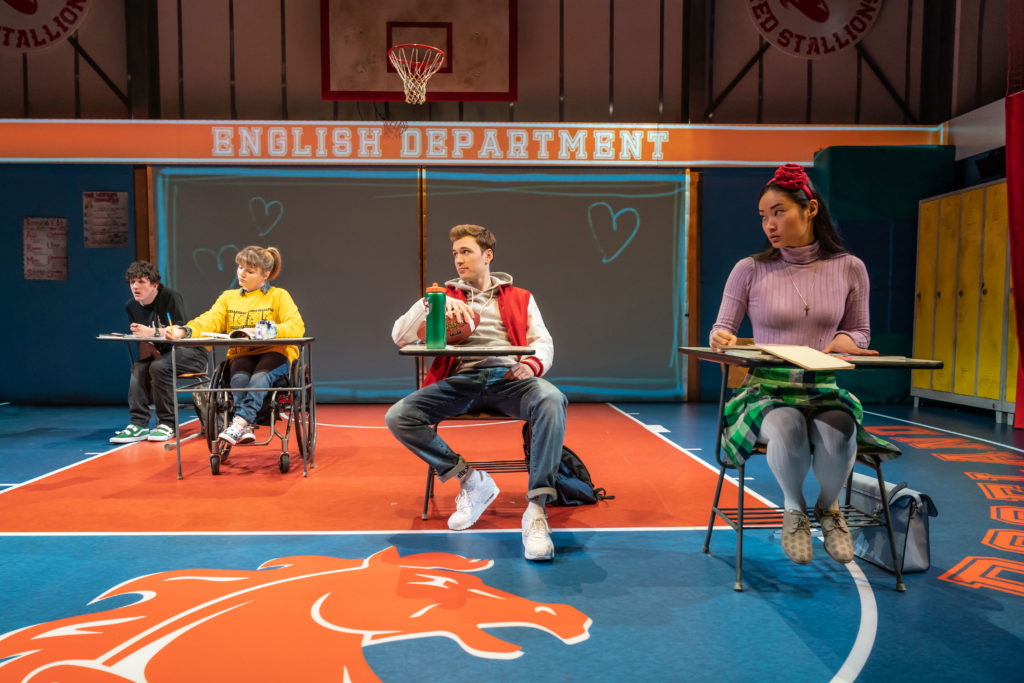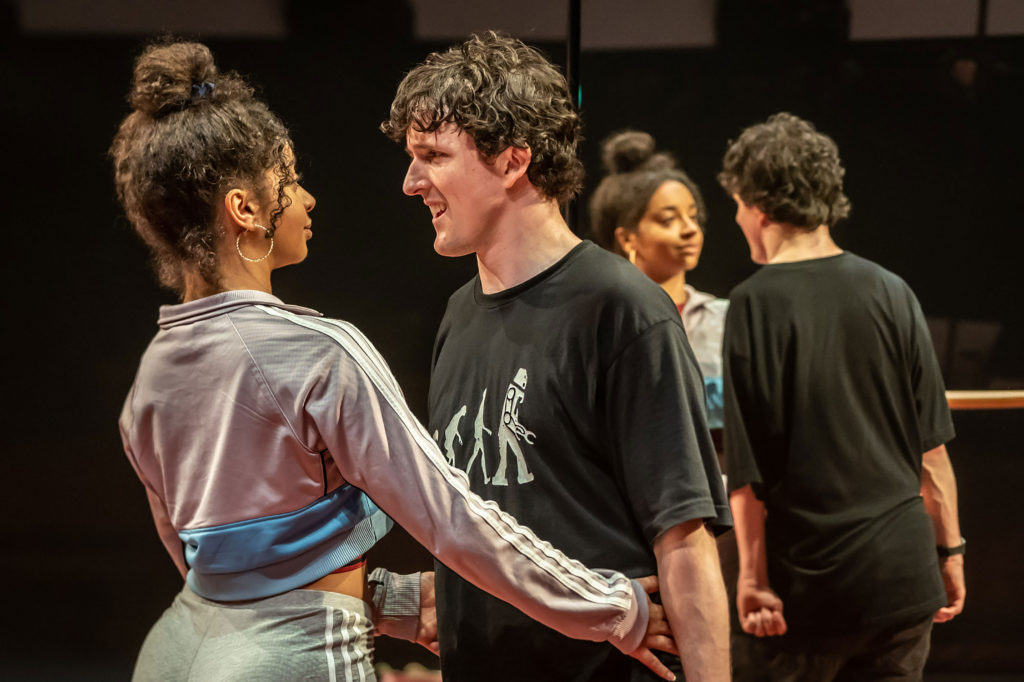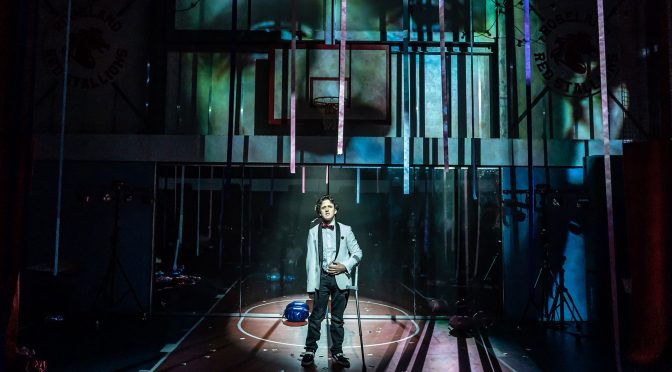Joining a slew of strong American plays to reach London this year, the work of Mike Lew receives a British premiere under the energetic direction of Michael Longhurst. Along with its provoking title, this reimagining of Shakespeare’s Richard III as a high-school drama ends up somewhat burdened by its concept. But it is more than just a smart exercise: insisting a disabled actor plays theatre’s most famous disabled character provides a superb vehicle for Daniel Monks, who takes the title role, and brings issues surrounding disability powerfully to the fore.
So, at Rosewood High the war that student Richard Gloucester starts is one for class presidency. He’s unwittingly aided by his friend ‘Buck’ and his teacher Mrs York (great performances from Ruth Madeley and Susan Wokoma) while his rivals are football star Eddie and over-achiever Clarissa (less satisfactory roles that Callum Adams and Alice Hewkin still do well with).

Such moves are not unfamiliar (Lucy Monroe will tell you about them in the programme) and Lew manages well enough. There are some amusing references to the play, and the meta-textuality (which even the worst of this genre shows) is plentiful. Openly acknowledging Richard’s arcane language (in itself interesting and impeccably delivered) – and how it contrasts with the other characters’ speech – is fun. Trouble is, this game can get tiring quickly.

Thankfully, Lew knows he has to be more than just playful. Both Richard and his love interest, Anne Margaret – who it’s acknowledged deserves a play of her own – provide emotional weight as the play grows. Focusing on Anne Margaret (played brilliantly by Siena Kelly) shows Lew’s strong writing – including a particularly harrowing scene that needs a warning – and the role goes some way to grounding the play.
That Monks is hemiplegic undoubtedly makes a difference to the story we know and leads to powerful scenes of Richard dancing and debating. Disability is stated as the reason for the character’s unpopularity – a stark suggestion – and from this comes his platform to change the “order of things” in school society. Unfortunately, whether his pledge is for the better or just for power gets a little lost.
Throughout, Lew plays with our expectations of Richard the character and of people with a disability. The layering effect seems less interesting than the mix of pity, hate and fear that the contemporary teen experiences. That’s the bit we’ve not seen before, while the Shakespeare seems a distraction. Lew’s exploration is seldom subtle – but it’s frequently effective. The challenge, that the audience assumes Richard can’t be the hero – and so must be the villain – raises problems too frequently ignored.
Until 1 February 2020
Photos by Marc Brenner

